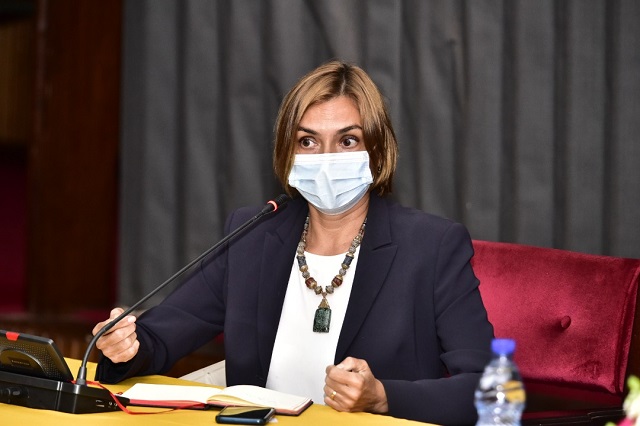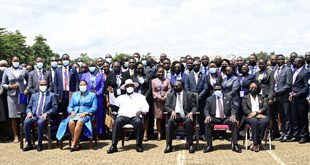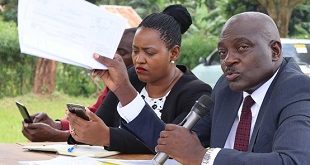
Kampala, Uganda | THE INDEPENDENT | Officials from the International Monetary Fund (IMF) have explained the recently approved US Dollars 1 billion extended credit facility for Uganda to support the post Covid-19 recovery.
The officials made the explanation on Monday afternoon during a meeting between the Leader of Opposition in Parliament, Mathias Mpuuga and the IMF country representative Izabela Karpowicz, and the agency’s Chief of Mission, Amine Mati.
The meeting was held under the auspices of the Parliamentary Forum on the IMF and the World Bank, intended to brief the leadership of the Opposition in parliament about government programs supported by the IMF and World Bank.
In June, the IMF Executive Board under the Extended Credit Facility (ECF) arrangement approved a loan to support Uganda’s post COVID-19 recovery and increase households’ incomes and inclusive growth by fostering private sector development.
Addressing the meeting via zoom from Washington DC, Mati took time to explain the US Dollars 1 billion loan facility for Uganda which was approved by the IMF executive board in June under the Extended Credit Facility (ECF) arrangement to support the post-COVID-19 recovery and the plan to increase households’ incomes and inclusive growth by fostering private sector development.
Mati said that Uganda was picked for the three-year financing package upon realizing that its economy had been hit hard by the COVID-19 crisis which reversed decade-long gains in poverty reduction, a deterioration of the fiscal balances and causing pressures on external buffers.
Mpuuga told the IMF officials that questions about the loan remains in the public domain since the government remained cagey on the intent of the loan. The Leader of Opposition also questioned how the IMF loan was approved without first seeking Parliamentary approval.
“We are surprised that seeking Parliamentary approval for the loan wasn’t critical for the IMF, some of these conditions that are subject to the laws of the land should be respected because oversight begins with respect of the laid down procedure,” said Mpuuga.
Mati however said that since the IMF deals directly with the Government and the Central Bank, they took it that there was conformity with the laws by the time the loan was applied for.
Budadiri West MP, Nathan Nandala Mafabi who is also a board member of the Parliamentary Forum on the IMF and the World Bank tasked the IMF team to explain whether they took into consideration Uganda’s absorption capacity following different Auditor General’s reports that revealed many unutilised loans.
Early this year, the Auditor General John Muwanga reported that 12 loans valued at 1.3 trillion Shillings expired before disbursement to respective ministries and government entities. This undermined the attainment of planned development targets and rendered commitment charges paid in respect of the undisbursed funds meaningless.
The MPs also raised questions on how the IMF came up with the figure for the loan and as to whether it cared about Uganda’s high public debt.
The IMF Country representative, Karpowicz said that while Uganda’s public debt is high, it does not cause so much concern since its Gross Domestic Product-GDP is better than that of many other countries.
This is why domestic revenue is a key component of the Extended Credit Facility (ECC) program,” she said. The meeting agreed to further engage the legislators to have a better understanding of how the loan facility was structured and to identify the major gaps in it.
*****
URN
 The Independent Uganda: You get the Truth we Pay the Price
The Independent Uganda: You get the Truth we Pay the Price


